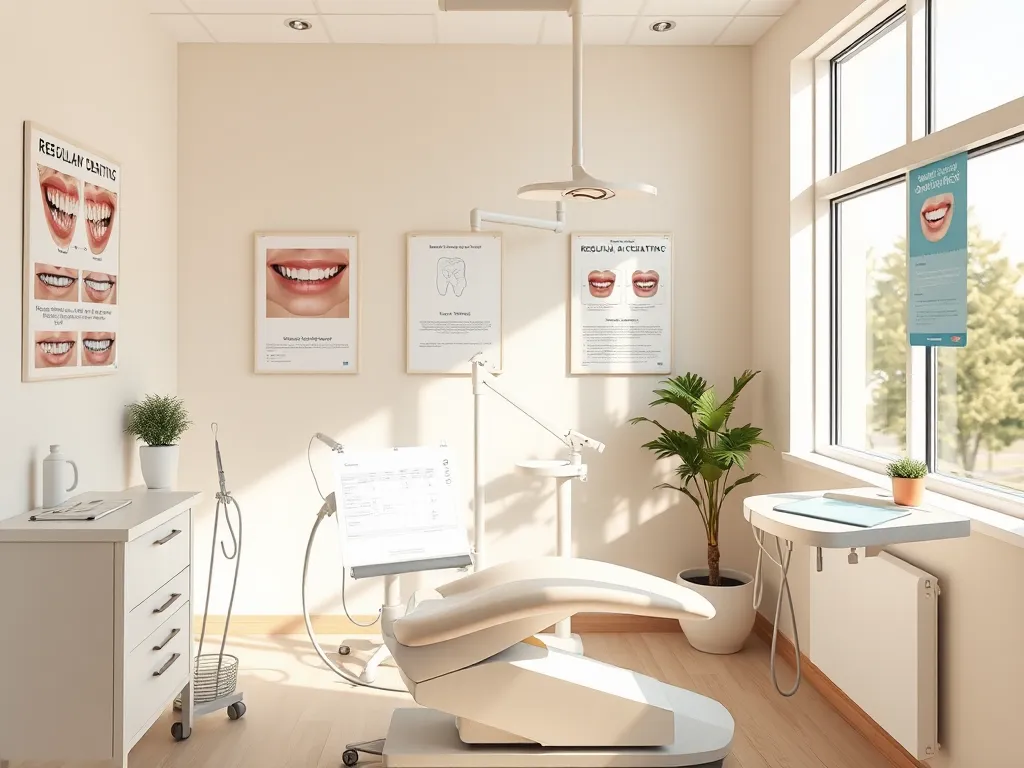The Importance of Regular Dental Check-Ups in Orthodontics

Understanding Orthodontics: A Comprehensive Guide
Orthodontics is a specialized field of dentistry that focuses on diagnosing, preventing, and treating dental and facial irregularities. These irregularities may include misaligned teeth, jaw discrepancies, and other bite issues. Orthodontics plays a crucial role in not only enhancing the aesthetics of a healthy smile but also promoting better oral health by ensuring that teeth fit together properly. Through various treatment methods, including braces and clear aligners, orthodontic care can greatly impact an individual's confidence and overall quality of life.
The importance of orthodontics extends beyond achieving a beautiful smile. Misaligned teeth can lead to a host of problems such as tooth decay, gum disease, and even issues with speech and chewing. By addressing these concerns early on, orthodontic treatments can help prevent more serious dental issues in the future. Furthermore, orthodontics can improve facial symmetry and provide patients with a more attractive appearance, which can lead to heightened self-esteem and social confidence.
Different age groups can benefit from orthodontic treatment, and it is advisable for children to have their first consultation by age 7. Early intervention can help identify potential developmental issues and allow for timely corrective measures. However, orthodontics is suitable for patients of all ages, including teenagers and adults, thanks to advancements in technology that allow for more discreet treatment options like invisible aligners and lingual braces.
Beyond traditional metal braces, orthodontic treatments have evolved significantly. Innovations such as ceramic braces, which blend in with natural tooth color, and clear aligners, often referred to as Invisalign, offer patients more options for effective treatment without compromising aesthetics. The choice of treatment depends on individual cases, oral health status, and personal preferences. Your orthodontist will guide you in making the best choice based on your specific needs and goals.
In conclusion, orthodontics is a vital aspect of dental health that not only focuses on the alignment of teeth but also impacts overall oral health and personal appearance. By understanding the various options available and the importance of timely intervention, patients can make informed decisions that lead to healthier, more attractive smiles. Regular dental check-ups play a critical role in ensuring the success of orthodontic treatment, making it essential to maintain communication with dental professionals throughout the process.
The Role of Dental Check-Ups in Orthodontic Success
Dental check-ups are essential during orthodontic treatment as they allow orthodontists to monitor the progress of alignment and effectiveness of the treatment plan. These regular visits provide an opportunity for the orthodontist to evaluate how well the teeth are responding to the braces or aligners. By tracking progress, any necessary adjustments can be made to ensure that the treatment stays on course and achieves the desired outcomes.
Identifying potential problems early in orthodontic treatment is crucial for long-term success. During dental check-ups, orthodontists can spot issues such as appliance breakage, changes in tooth position, or the onset of cavities that may affect treatment. Early detection and intervention can help prevent complications that could prolong treatment time or lead to less than ideal results, emphasizing the importance of being vigilant during these visits.
As orthodontic treatment progresses, an individual's needs may change. Adjusting treatment plans as needed is a key component of successful orthodontics. Regular check-ups allow orthodontists to modify treatment strategies based on the patient's progress and any challenges that may arise. This adaptability ensures that patients receive personalized care that aligns with their evolving needs and dental health status.
Common Dental Issues During Orthodontic Treatment
Cavities and decay risks are heightened during orthodontic treatment due to the brackets and wires that can trap food particles and plaque. Maintaining proper oral hygiene becomes more critical, as patients must navigate cleaning around braces or aligners to prevent decay during their treatment. Regular dental check-ups help monitor tooth health and catch any developing cavities before they become a complication.
Gum health is another vital aspect to consider during orthodontic treatment. The presence of braces can make it more difficult for patients to maintain optimum oral hygiene, which may contribute to gingivitis and other periodontal issues. Ongoing monitoring during dental check-ups allows orthodontists to ensure that patients are taking the necessary steps to keep their gums healthy and receive guidance on improving their oral hygiene routines.
Managing tooth sensitivity and pain is common during orthodontic treatment, especially after adjustments. During dental visits, patients can address their concerns regarding discomfort and receive advice on pain relief strategies. Understanding that such sensitivity is often a normal part of the process can help alleviate anxiety and stress associated with treatment, fostering a more positive orthodontic experience.
The Connection Between Oral Health and Orthodontics
The impact of oral hygiene on treatment outcomes cannot be overstated. Poor oral hygiene can lead to complications like cavities, gum disease, and even extended treatment times due to the need for corrective action. Therefore, maintaining a good oral hygiene routine is imperative for those undergoing orthodontic treatment. Regular dental check-ups serve as a pivotal tool in encouraging and reinforcing good hygiene practices, enhancing the likelihood of successful outcomes.
Conversely, orthodontics can affect dental health in various ways. Properly aligned teeth can improve chewing function and reduce wear on enamel, decreasing the risk of future dental problems. By correcting bite and alignment issues, orthodontics can create a healthier foundation for long-term oral health. As teeth are moved into their proper positions, they become easier to clean, fostering better oral hygiene practices.
Maintaining healthy teeth while in braces or clear aligners is a challenge that requires dedication and commitment. Patients must stay proactive in their oral hygiene regimen, which should include regular brushing, flossing, and use of mouthwash. Orthodontists often provide specific instructions for caring for teeth during treatment to support patients in keeping their smiles healthy and vibrant.
Tips for Effective Dental Visits During Orthodontic Treatment
Preparing for your dental check-up involves ensuring that you have a clear understanding of your treatment progress. Patients should arrive with a list of any questions or concerns, such as discomfort, changes in their teeth, or the effectiveness of their current treatment plan. Taking note of any symptoms or issues since the last visit can also help the orthodontist make informed decisions about modifications or adjustments during the appointment.
Asking the right questions during dental visits can significantly enhance the orthodontic experience. Patients should inquire about the expected timeline for their treatment, methods for managing discomfort, and recommendations for oral hygiene products that cater to their specific needs. This communication fosters a collaborative environment where patients feel empowered and involved in their treatment journey.
Follow-up care after dental appointments is crucial to ensuring the effectiveness of orthodontic treatment. Patients should adhere to post-appointment instructions provided by their orthodontist, including dietary restrictions or care routines. Monitoring their oral health and promptly addressing any concerns that arise after an appointment can help ensure successful treatment outcomes.
Frequently Asked Questions About Orthodontic Check-Ups
How often should I see the dentist during orthodontic treatment? The frequency of visits typically depends on the individual's treatment plan. Most patients will see their orthodontist every 4 to 8 weeks for adjustments and progress checks. Regular dental check-ups with a general dentist should also be maintained to monitor overall oral health.
What can I expect during a dental check-up? During a dental check-up, the orthodontist will evaluate the progress of your orthodontic treatment, make necessary adjustments, and provide guidance on maintaining oral health. This may include reviewing oral hygiene practices and addressing any concerns you may have about your braces or aligners.
Understanding the treatment timeline can help manage expectations and anxiety. Orthodontists will provide a projected timeline based on individual cases and goals, but it is essential to remain flexible as every patient's response to treatment can differ. Regular evaluations during check-ups will help refine these timelines and ensure that optimal progress is made.
